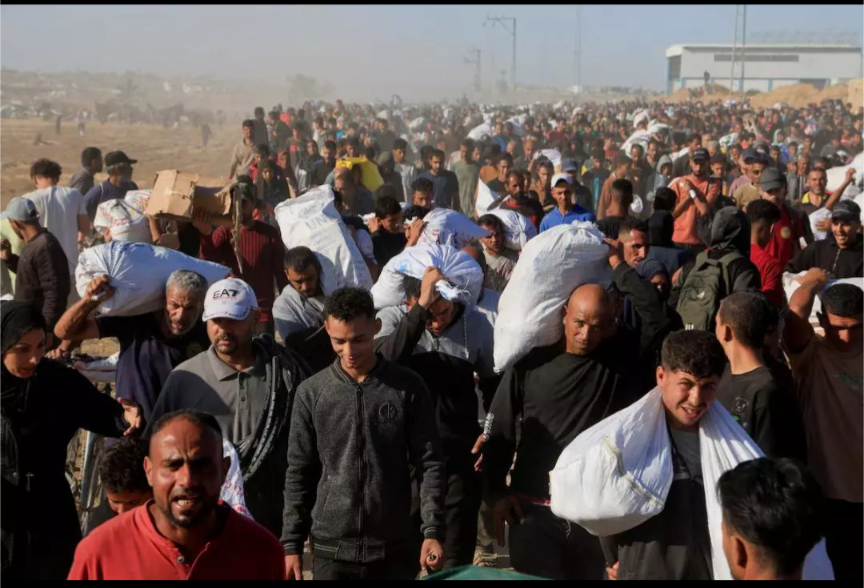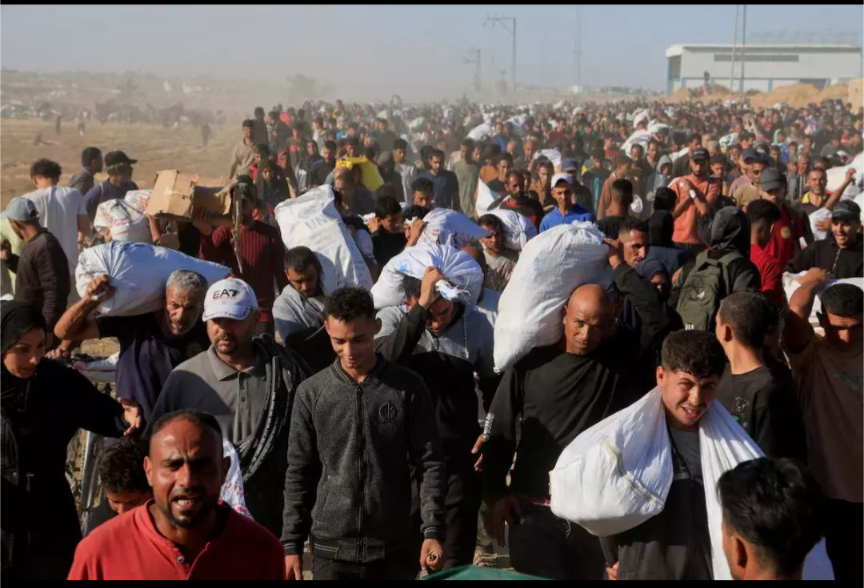Israel may slow or stop aid entering northern Gaza amid growing tensions. Learn the reasons and global reactions in this breaking update.

As Israel steps up its military offensive in Gaza City, critical changes in humanitarian policy signal devastating consequences for civilians in northern Gaza. Official sources reveal Israel plans to *slow or completely halt humanitarian aid—including suspending air drops and reducing truck deliveries—as part of its intensified operations. Humanitarian organizations warn this move could dramatically worsen the crisis in famine-stricken northern Gaza.
For broader context on Gaza’s humanitarian challenges, see our past coverage: “Mass Evacuation of Gaza Impossible: Red Cross Amid Israeli Attack”.
What the Latest Reports Reveal
Official Confirmation
According to an anonymous Israeli official speaking to the Associated Press, Israel will stop airdrops over Gaza City in the coming days and reduce or halt aid truck access to northern Gaza. This step accompanies the formal declaration of Gaza City as a combat zone and follows the cessation of daily fighting pauses previously used to allow aid deliveries.
AP News+1The Times of Israel
Humanitarian Pause Ends
These developments come just a day after the military announced a complete halt to daily humanitarian pauses aimed at facilitating aid entry. Aid organizations are alarmed, warning that food deliveries already fall dramatically short of the 600 trucks per day needed to sustain the population.
The GuardianAP NewsThe Times of Israel
The Humanitarian Fallout
Escalating Famine and Starvation
Northern Gaza was already classified as experiencing famine by leading global food security authorities. In recent days alone, starvation has claimed multiple lives, including children. Aid agencies stress that limited aid, combined with the halt in access, spells sweeping hardship and possible mass mortality.
The GuardianThe Wall Street JournalAP News
Evacuation Warnings
Humanitarian experts, including the ICRC, call evacuation of Gaza City “unfeasible and incomprehensible” given the total destruction of infrastructure, and extreme shortages of water, shelter, and medical care in the south.
AP NewsThe Guardian
International Reaction & Political Pressure
U.S. Congressional Appeals
Five Democratic U.S. senators—led by Ruben Gallego—have urgently demanded the State Department push for a massive surge of baby formula and humanitarian aid to Gaza, emphasizing the cruelty of denying basics to infants amid acute malnutrition.
The Guardian
Worsening Famine Indicators
Observers note that ongoing aid restrictions and combat escalation may amount to starvation as a weapon of war, a stance echoed by human rights bodies and expert assessments. U.N. officials and NGOs stress that without dramatic changes, civilian suffering will deepen.
WikipediaThe Washington PostThe TimesAP News
Strategic Developments & Aid Logistics
Earlier Aid Shifts
Earlier in August, Israel approved limited entry of goods through local merchants in southern Gaza—a temporary measure amid a broader aid impasse. Yet, these corridors remain inadequate for addressing northern Gaza’s severe needs.
Reuters
Long-Term Blockade Impact
Since October 2023, Israel has enforced a near-total blockade of Gaza, cutting off food, fuel, medicine, and electricity. Even when partial easing occurred, northern Gaza remained heavily restricted, intensifying famine and deprivation.
Wikipedia
On-the-Ground Reality
One report from the Wall Street Journal offers piercing insight: families wait in long lines for water, scavenge rubble for firewood, and risk injury or death just accessing minimal aid. Aerial drops and convoy efforts have been marred by violence, looting, and misdistribution.
The Wall Street JournalAP News
Summary
- Israel confirms plans to suspend or slow aid access to northern Gaza, including halting airdrops and truck routes.
- Humanitarian pause lifted, intensifying the famine that already grips the region.
- Calls amplify from international lawmakers and aid agencies demanding immediate aid escalation.
- Tactical shifts signal a turning point: wartime priorities are irreversibly changing aid modalities, with devastating consequences likely to follow.



